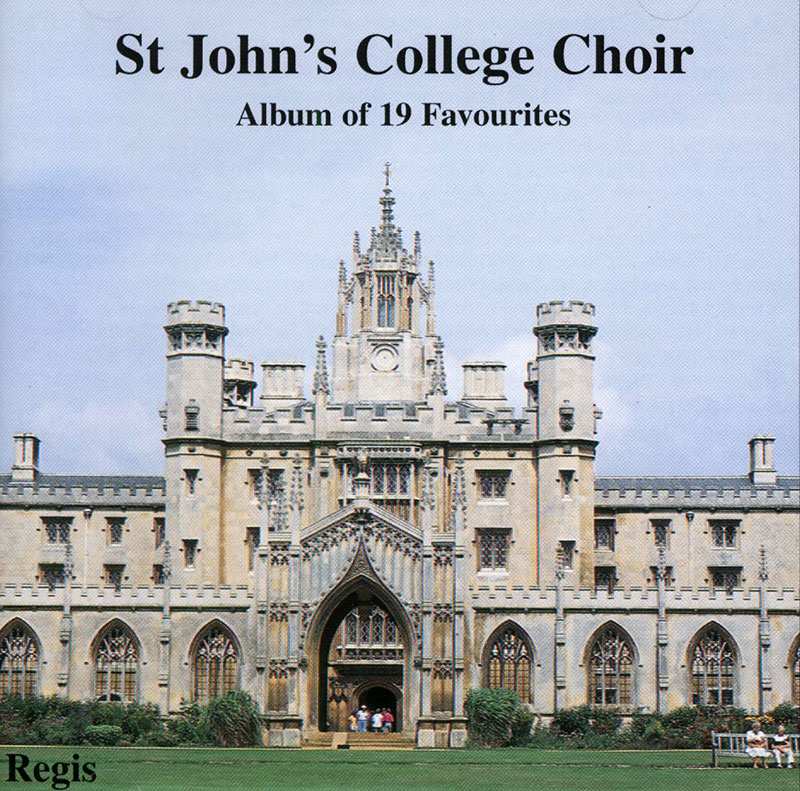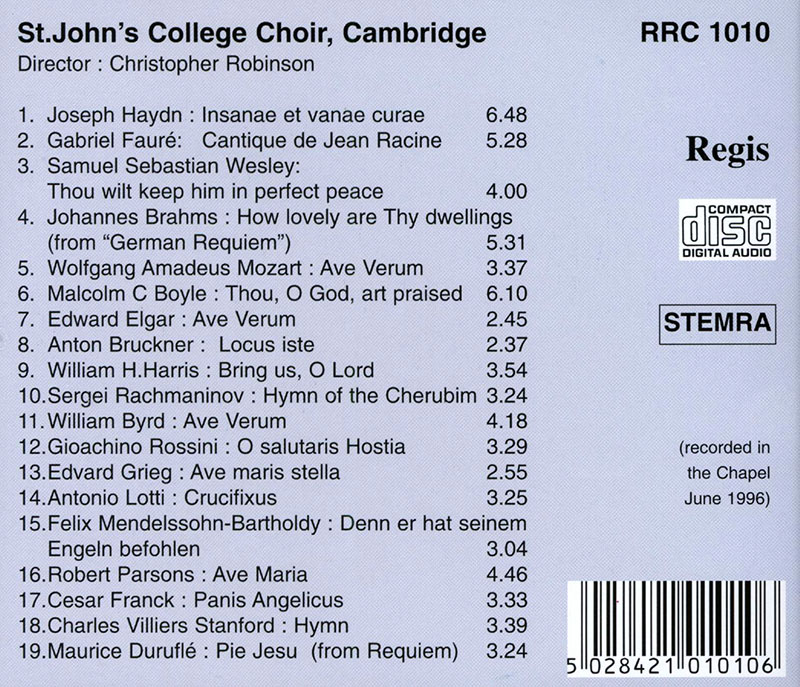Logowanie
Dziś nikt już tak genialnie nie jazzuje!
Bobby Hutcherson, Joe Sample
San Francisco
SHM-CD/SACD - NOWY FORMAT - DŻWIĘK TAK CZYSTY, JAK Z CZASU WIELKIEGO WYBUCHU!
Wayne Shorter, Freddie Hubbard, Herbie Hancock, Ron Carter, Elvin Jones
Speak no evil
UHQCD - dotknij Oryginału - MQA (Master Quality Authenticated)
Chesky! Niezmiennie perfekcyjny
Winylowy niezbędnik
ClearAudio
Double Matrix Professional - Sonic
najbardziej inteligentna i skuteczna pralka do płyt winylowych wszelkiego typu - całkowicie automatyczna
HAYDN, FAURE, BRAHMS, MOZART, BRUCKNER, St.John's College Choir, Cambridge, Christopher Robinson
Album of 19 favourites from St.John's College Choir, Cambridge

- St.John's College Choir, Cambridge - choir
- Christopher Robinson - conductor
- HAYDN
- FAURE
- BRAHMS
- MOZART
- BRUCKNER
Christopher Robinson has rightly earned the reputation as one of the leading English choral conductors from the second half of the 20th century. While he has been closely identified with sacred music, he has also delved extensively into secular works. His repertory ranges from Baroque to contemporary, but with a decided slant toward 20th century British music. The names Elgar, Britten, Tippett, Maxwell Davies, Berkeley, Howells, Rubbra, Tavener, Walton, and a spate of other 20th century British composers occupy a good portion of his concert programs. That said, Robinson is also a master interpreter of the choral music of Haydn, Mozart, Mendelssohn, Durufle, Rachmaninov, Poulenc, Messiaen, and many other non-British composers. Robinson, who often held the dual post of organist and choirmaster, has also drawn lavish praise for his skills on the organ. He has appeared on more than 50 recordings, mostly as conductor, with a few as organist (Saint-Saens' Organ Symphony, for example) and a handful serving in both roles. His recordings are available on numerous labels, including Naxos, Chandos, Brilliant Classics, Hyperion, Nimbus, EMI, Regis, and Guild. Christopher Robinson was born in England in 1936. He trained originally as an organist, serving as an organ scholar at Christ Church, Oxford. He launched his career at Worcester Cathedral, accepting the post of organist and master of the choristers. While there, Robinson also served every August as conductor at the Three Choirs Festival concerts. Upon departing his Worcester Cathedral post, Robinson was appointed organist and choirmaster at St. George's Chapel, Windsor Castle, holding the position until 1991. Robinson soon accepted another enduring appointment, that of conductor of the City of Birmingham Choir, a post he held from 1964-2002. He took on a concurrent third assignment, conductor of the Oxford Bach Choir (1976-1987). By 1990 Robinson was one of the most acclaimed choral conductors in England. In 1992 he was given the title of Commander of the Victorian Order by the Queen for his masterly services at Windsor Castle. That same year Robinson accepted the post of organist and director of music at St. John's College, Cambridge. This period in his career saw a spate of highly praised recordings, like the 1993 Hyperion CD Sacred Music by John Tavener, with St. George's Chapel Choir. Robinson retired from St. John's College in 2003. Among his notable later recordings is the 2001 Naxos CD of Nine Tenebrae Motets by Rubbra.


































